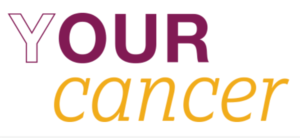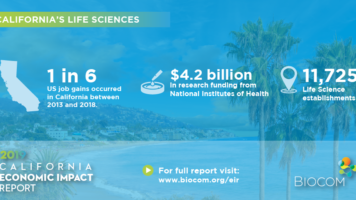Industry News
Historic Sickle Cell Disease Legislative Briefing Seeks to End Most Common Genetic Disorder in U.S.
May 2019
The California Legislative Black Caucus and the California Biotechnology Foundation hosted a historic briefing with medical providers, health advocates and California’s life sciences industry on May 8th to discuss the impact of Sickle Cell Disease (SCD) on patients and the healthcare system, as well as groundbreaking initiatives and treatments for SCD.
The first briefing of its kind, the event brought together more than 40 leaders in science, medicine, patient advocacy and policy to engage in a conversation about the cause and prevalence of SCD, the patient/provider experience, and promising advancements to treat this debilitating disease.
Speakers included:
- Susan Claster a hematologist from the Adult Sickle Cell Clinic, Martin Luther King Jr. Outpatient Center discussed current SCD treatments.
- Assemblymember Mike Gipson moderated a patient panel to discuss the grave challenges for those living with SCD.
- Susan Paulukonis, Program Director from the CA Rare Disease Surveillance Program at UC Berkeley’s Public Healthcare Institute provided a snapshot of SCD data in California including age, ethnicity, geography, medical interventions, health outcomes and mortality rates.
- Kieth Quirolo, the former Director of the Pediatric Sickle Cell Program at UCSF Benioff’s Children’s Hospital Oakland overviewed game changing treatments on the horizon that could save or prolong lives and eventually prevent SCD from occurring.
SCD is a lifelong and life-threatening inherited blood condition that causes ongoing damage to blood vessels and organs. People with SCD often experience recurrent episodes of acute, severe pain which can eventually become chronic. While SCD is considered a rare disease, it is one of the most common genetic disorders in the U.S.
While people of all ethnicities can have the disease, people of African descent are disproportionately impacted followed by those of Latino descent. SCD currently affects more than 20 million people worldwide. Here in the U.S., 100,000 people, including one in every 365 Black or African Americans, live with SCD.
Additional SCD briefings are being planned for the future. For more information contact [email protected].
 YOUR Cancer Program Convenes California’s Cancer Community to Discuss Precision Medicine Policy
YOUR Cancer Program Convenes California’s Cancer Community to Discuss Precision Medicine Policy
CBF recently participated in a state policy roundtable as part of the YOUR Cancer initiative from AstraZeneca, which aims to spotlight and elevate voices from across the cancer community who are working to support those living with and affected by cancer.
Leaders from California’s oncology community and members of the state legislature discussed precision medicine and identified policy solutions to four key barriers to ultimately improve patient outcomes:
- Clinical: Precision medicines are quickly being approved, challenging health professionals to stay abreast of new treatments and testing requirements to improve treatment decisions.
- Technology: Laboratories are increasingly outsourcing testing to reduce investments in new platforms and expertise, which complicate turnaround time, sample collection and shipping.
- Reimbursement: High standards for demonstrating clinical and economic utility pose coverage barriers for testing despite high value of diagnostics in tying right treatment to right patients, resulting in better patient outcomes.
- Bureaucracy: The requirements to meet the standards for necessary hereditary testing are both too stringent and/or often place unnecessary lifetime limits on genetic tests. These over burdensome regulations and requirements limit testing access which can prevent a patient from receiving further necessary and/or required re-testing.
To learn more about the roundtable and proposed solutions to barriers of care, click here. To learn more about the YOUR Cancer program and how you can get involved, visit: YourCancer.org.
Stay informed on the latest news and trends on the economic and health benefits of this important industry by visiting the new CABiotech.org
For more information about California’s biotechnology and life science industry, contact California Biotechnology Foundation Executive Director Patty Cooper at (916)764-2434 or [email protected].



